Sophia Tondon
I am a tech blogger with 5+ years of experience in field of technical blpg writing.
We use cookies to help you navigate efficiently and perform certain functions. You will find detailed information about all cookies under each consent category below.
The cookies that are categorised as "Necessary" are stored on your browser as they are essential for enabling the basic functionalities of the site. ...
Necessary cookies are required to enable the basic features of this site, such as providing secure log-in or adjusting your consent preferences. These cookies do not store any personally identifiable data.
Functional cookies help perform certain functionalities like sharing the content of the website on social media platforms, collecting feedback, and other third-party features.
Analytical cookies are used to understand how visitors interact with the website. These cookies help provide information on metrics such as the number of visitors, bounce rate, traffic source, etc.
Performance cookies are used to understand and analyse the key performance indexes of the website which helps in delivering a better user experience for the visitors.
Advertisement cookies are used to provide visitors with customised advertisements based on the pages you visited previously and to analyse the effectiveness of the ad campaigns.
Business intelligence has become a major point of interest among businesses as it allows them to leverage software and IT services to...
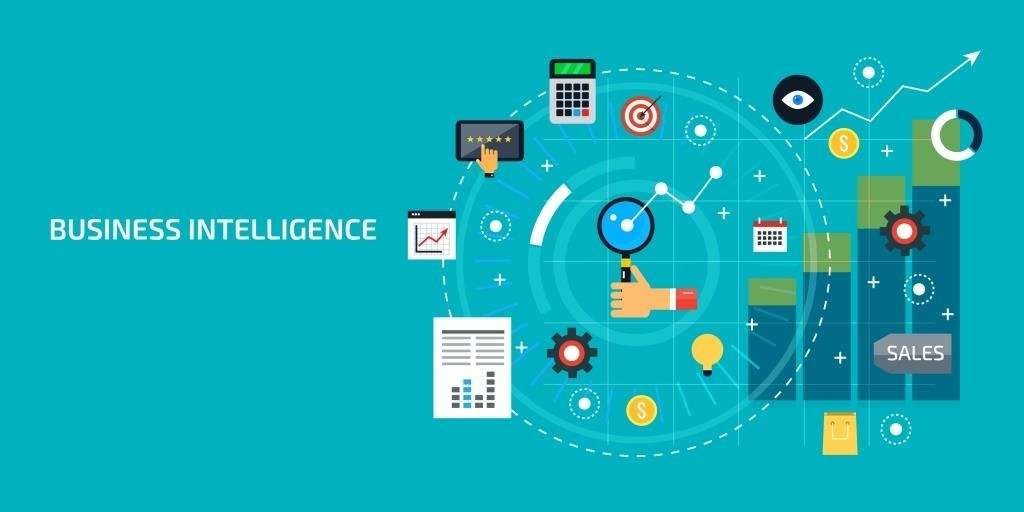
Business intelligence has become a major point of interest among businesses as it allows them to leverage software and IT services to acquire actionable insights from data to inform organizations with strategic and tactical decisions.
In short, BI is expanding its reach all across the world and deepening its roots in the global marketplace in conjunction with BI tools. Business analytics and intelligence tools enable enterprises to analyze huge data sets and provide reports, summaries, graphs, charts, dashboards innate with major insights that represent the state of business.
BI is a term that also indicates a wide range of analytics tools to enable quick, easy-to-digest access insights about organizations’ current state and forecasting. Moreover, the services of Business intelligence consultants are also increasing in popularity. Surely, you would be having several questions regarding business intelligence. In this article, I will be answering the most common queries related to BI trends. So, gain BI insights and how it turns data into a valuable piece of information.
BI is all about the technologies, software applications, and practices for collecting, analyzing, integrating, and presenting business information. The major purpose of business intelligence is to enable businesses/enterprises to make better decisions.
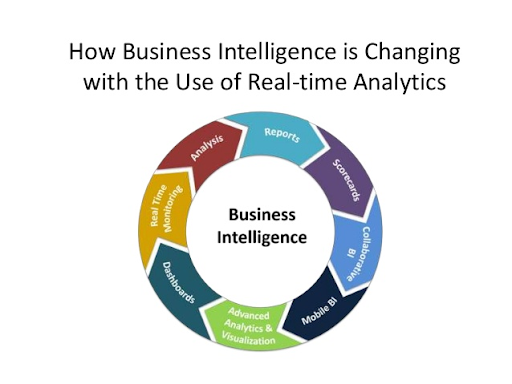
Business Intelligence systems are data-driven decision support systems that sometimes use the software to generate reports, query tools, and executive information systems. Major BI tools are:
Wondering how you can use these technologies in business? Let’s take a glance at how enterprises use business intelligence.
Reporting is a key element of business intelligence, and the dashboard panel is probably a critical BI tool. What are dashboards? Actually, they have hosted software applications that automatically pull together the available data in charts and graphs and give an idea of the company’s immediate state.
While business information does not tell business users what to do or what to not do if they take a particular course, in short, BI is not just about creating reports. Rather, BI provides a way that enables people to gain insight through the efforts such as examine, merge, and question the data needed to find the trends and make good business decisions.
For example, for a company looking for a better way to manage its supply chain needs, BI provides capabilities to find out places of delays occur and where there is variability in the launch process, per WCI Consulting, Chris Hagan, vice president of operations. The company may also use its BI capabilities to find out which products are most delayed or which modes of transport are most often delayed.
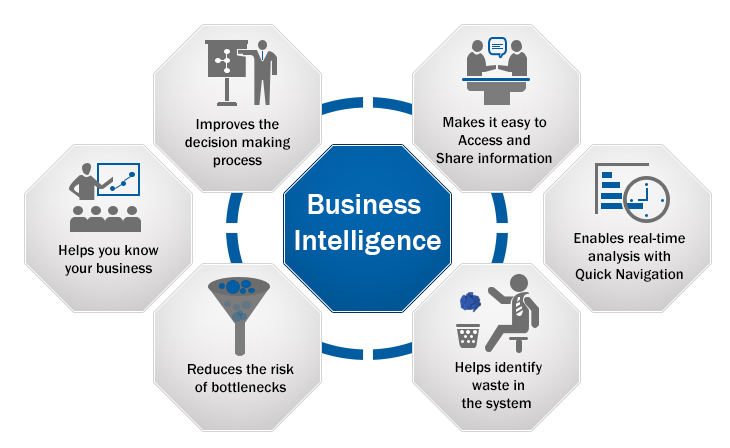
The potential use cases for BI go beyond the typical business performance matrix of improved sales and lower costs, says Cindy Howson, Vice President of Research at research firm and IT consultant Gartner. She points out that she has been successful in using it at Columbus, Ohio, school system, and BI tools, examining a number of data points – from attendance rates to student performance – to enhance student learning and high school graduation rates.
BI Tableau and G2 also provide concrete examples of how organizations can use business intelligence tools:
Analytics and BI tools are major aspects and work together closely to bring valuable insight for businesses and to make precise decisions. Let’s understand how these things work.
Data analytics and business analytics are intrinsic parts of Business intelligence, but it uses them only as parts of the whole process. BI is helping users draw conclusions from data analysis. Data scientists allow you to explore the specifics of data. In this process, the use of advanced statistics and predictive analytics is prevalent to discover patterns and forecast future patterns.
There are so many questions that Data analytics asks, and the major one is “Why did this happen and what can happen next?” Business intelligence actually takes those models and algorithms and declutters the data that turn it into results of actionable language.
Per Gartner’s IT glossary, “business analytics incorporates a number of processes viz data mining, applied analytics, predictive analytics, and statistics.” In short, organizations carry out business analytics as part of their business intelligence strategy, and it enables them to answer specific queries and provide simple analysis for decision making or planning. However, companies can leverage the processes of analytics to enhance follow-up questions and iteration in a row.
Moreover, Business analytics can’t be a linear process as it allows them to answer a number of questions and turn out a useful iteration. It is more like a process that includes a cycle of data access, exploration, discovery, and information sharing. It is called the analytics cycle, and that’s the way businesses use analytics to respond to continually changing questions and expectations.
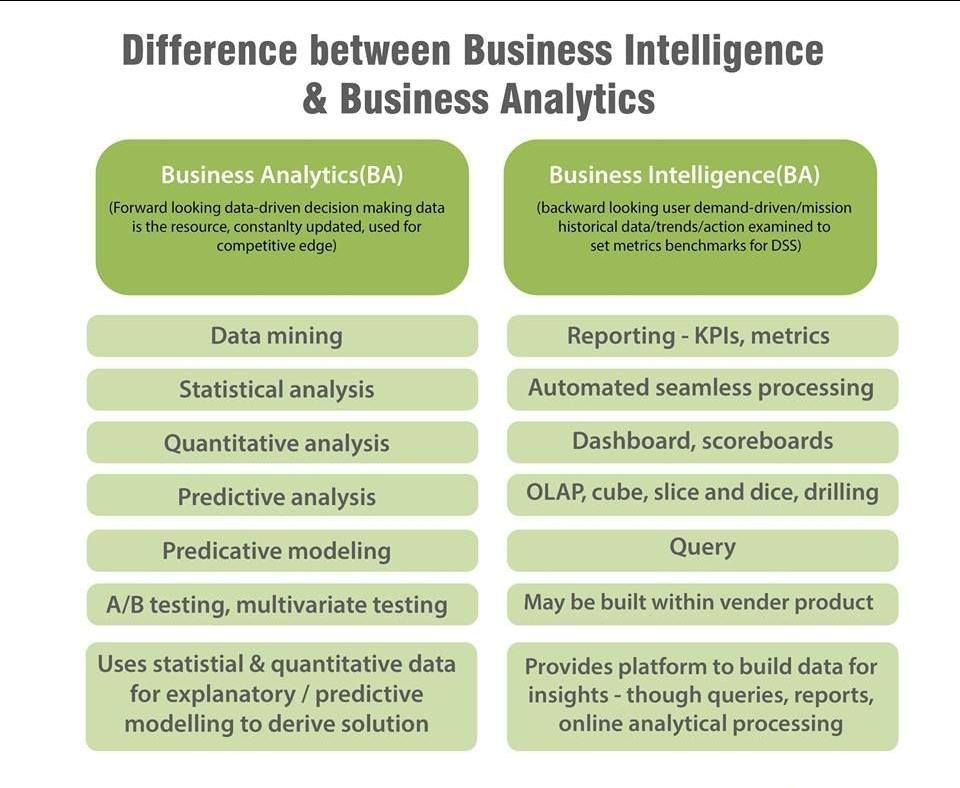
Previously, BI tools have relied on traditional business models. In this approach, things take place from top to down, where not all analytics questions were used to be answered through the static report. Moreover, it was including queuing for questions and requests. For follow-up questions, they have to re-start the process again.
Though the modern approach is very different and includes the use of AI/Ml algorithms that work on each possibility and question, it is more interactive and approachable. In this, IT departments are important and include managing access to data where multiple levels of users can be customized from the dashboard and create reports that consider every single aspect.
It also includes the use of proper and intelligent software that empowers users to visualize data in a dissimilar format and provide answers to their questions. That’s the reason business intelligence consulting is being adopted by a number of organizations.
There is no dearth of disparate industries, which have adopted BI ahead of the curve, viz, healthcare, information technology, supply chain, logistics & transportation, and education. The fact is that all organizations can use data to transform operations and gain tangible benefits.
The fact is business intelligence can be used in a number of processes of an organization; here are some ways business intelligence can benefit an organization.
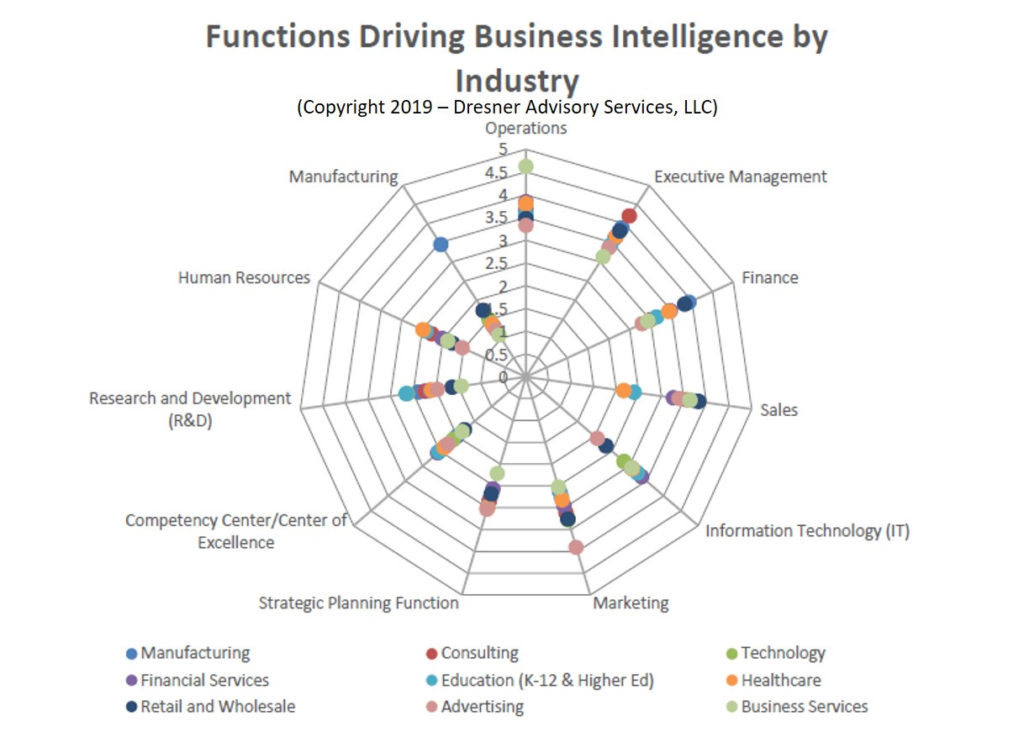
Apart from these, business intelligence helps in many other aspects of growth for organizations. Let’s take a glance at some software tools of business intelligence that make analytics seamless and automated.
As the market is thriving, a number of vendors are coming in each day in this space. Besides, improved and innovative software solutions are major catalysts of this space. Here are some popular business analytics tools.
Domo: As a cloud-based platform, it provides business intelligence tools specifically created for various industries, such as financial services, healthcare, manufacturing, and education. Moreover, it helps in the work of CEOs, BI professionals, sales, and IT workers.
Google Data Studio: A Google analytics version offering supercharged features of analytics to manage company data & analytics.
Einstein Analytics: This tool is the work of Salesforce to improve BI with Artificial intelligence.
Tableau: It is a self-service analytics platform that helps businesses to gain data visualization power and integrate data from a large range of data sources such as SQL, Microsoft Azure, Excel, and more.
Splunk: It is a guided analytics platform enabling enterprise-grade business analytics and data analysis.
Dundas BI: It is greatly used for creating dashboards and scorecards. Moreover, you can also do standard and ad-hoc reporting.
Birst: It is a cloud-based service that can be used across multiple instances of the BI software and share a common data backend.
Alteryx: It merges analytics from a number of sources to make workflows seamless and provide a wealth of BI insights.
Qlik: It is useful in BI & Analytics, data visualization, scalable BI platform.
Business intelligence is extending its functions and processes and serving the increasing needs of businesses and technology. Each year, business intelligence consulting firms are helping organizations to embrace the practice and tools.
Moreover, Artificial intelligence and machine learning are continually growing in this space and making practices more data-driven, collaborative, and efficient. BI enables real-time sales tracking, gaining insight into customer behavior, forecast profits & trends.
Industries like retail, insurance, oil, and many others have adopted it, and more are joining each year. You must also infuse BI into your business to cherish both organizational and market benefits.
thanks for sharing this amazing blog with us